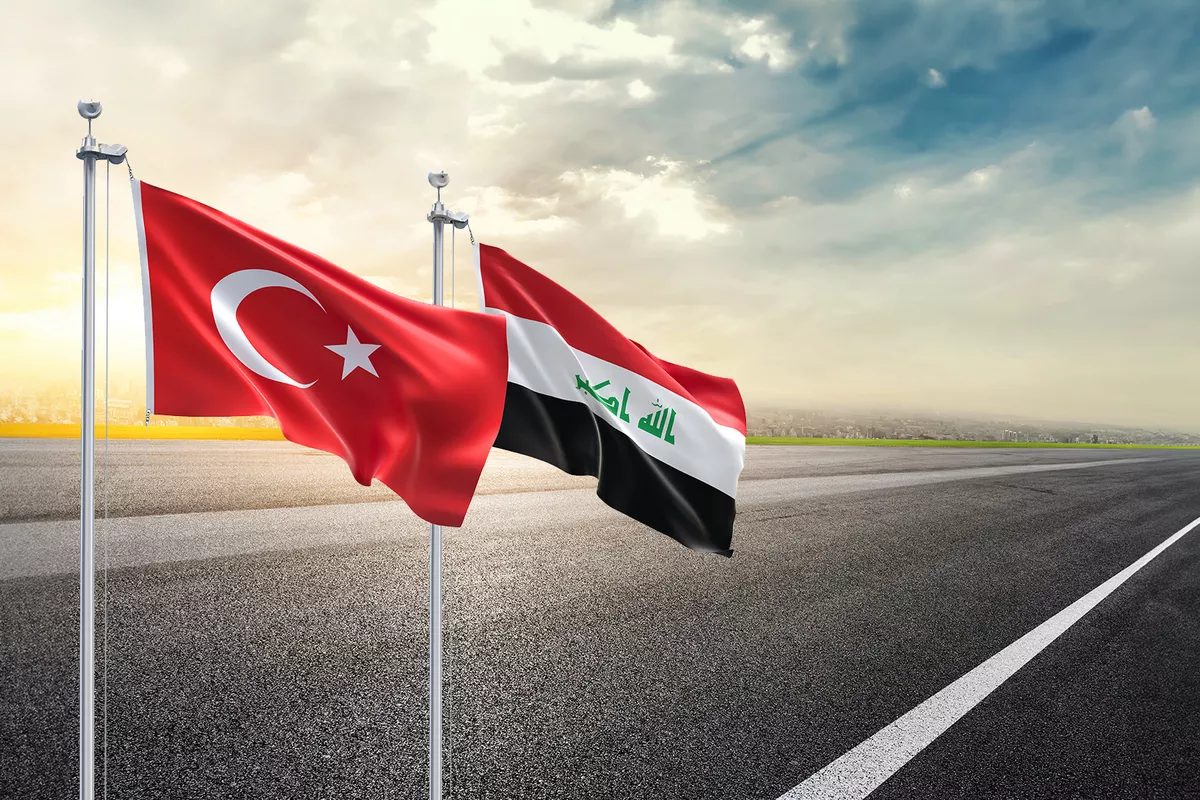
Photo credit: trendsresearch.org
The new energy deal between Türkiye and Iraq, which aims to expand cooperation beyond oil to include gas, petrochemicals, and electricity, is expected to be structured with consideration of the strategic potential of the Development Road project, according to a report on Thursday.
Ankara announced earlier this month the termination of a decades-long agreement covering the Kirkuk-Ceyhan oil pipeline and has submitted a draft proposal to Baghdad to renew and broaden an energy agreement between the two countries, The Caspian Post reports citing Daily Sabah.
The deal, which has been in effect since 1973, will expire on July 27, 2026.
In line with this, Türkiye has initiated negotiations with Baghdad for a more comprehensive energy cooperation.
The new energy deal is planned to facilitate the transportation of Iraqi oil, with the central governments of Türkiye and Iraq expected to be structured in a way that takes into account the strategic potential of the Development Road, according to an Anadolu Agency (AA) report on Thursday.
According to information obtained by AA, the new agreement is expected to cover not only oil transportation but also multi-dimensional partnerships in natural gas projects, the development of hydrocarbon fields, investments in refineries and petrochemicals, electricity generation and transmission and energy trade.
Experts note that the new energy agreement to be formed between the two countries will be structured around the opportunities offered by the successful completion and sustainable functionality of the Development Road initiative.
The Development Road is envisaged as a high-speed road and rail link, running from Iraq's port city of Basra on the Gulf to the Turkish border and later to Europe and is seen as a major project linking Ankara and Baghdad. The multibillion-dollar project is also backed by Qatar and the United Arab Emirates (UAE).
'Doors to new opportunities'
Sercan Çalışkan, a researcher at the Center for Middle Eastern Strategic Studies (ORSAM) specializing in Iraqi studies, emphasized that relations between the two countries have evolved to a strategic level in the field of energy and that this process is linked to the Development Road project.
Çalışkan underlined that this project signifies new energy corridors not only for Türkiye and Iraq but also for other regional countries.
"It’s possible to say that both parties are willing to expand forward-looking steps in Türkiye-Iraq relations by taking the initiative. Therefore, bilateral ties fueled by the Development Road project have created a favorable environment for opening new doors of opportunity in various fields," he told AA.
Çalışkan noted that the ongoing negotiation process regarding the new agreement lays the groundwork for comprehensive and long-term cooperation that will also prevent legal disputes between the parties.
"The potential of Türkiye-Iraq relations is such that it can pave the way for collaborations in areas beyond oil, including natural gas, electricity and other energy sectors," he said.
"One of the key determinants in realizing this potential is the healthy and uninterrupted continuation of intensive diplomatic contacts at the leadership level between the two countries. Additionally, the high strategic potential offered by the Development Road project has made it inevitable to redesign a new energy agreement with expanded scope and quality," he suggested.
Çalışkan indicated that if the agreements result positively, the resumption of energy flow will carry long-term strategic significance.
The flows through the pipeline were halted in 2023 following an arbitration ruling by the International Chamber of Commerce (ICC) that Türkiye is appealing.
The ICC had ordered Ankara to pay Baghdad damages of $1.5 billion over what it said were unauthorized exports by Iraq's Kurdistan Regional Government (KRG) between 2014 and 2018.
Türkiye, on the other hand, said that the ICC had recognized most of Ankara's demands. Since then, Iraq and Türkiye have been working to resume oil flows from the pipeline.
"After a new agreement, ensuring uninterrupted and secure energy flow will be noteworthy in terms of demonstrating Türkiye and Iraq’s ability to build a stable ground together, especially under the shadow of regional conflicts and security risks," said Çalışkan.
Energy hub role
Yesar al-Maleki, a Gulf expert at Middle East Economic Survey (MEES) magazine, stated that Türkiye and Iraq are eager to expand their economic cooperation within the framework of the Development Road project.
"It’s also possible to transport crude oil from other countries via the Türkiye-Iraq oil pipeline, which would further strengthen Türkiye’s position as a regional energy hub between Asia and Europe," he said.
"More importantly for Ankara, it would allow the integration of oil volumes obtained through hydraulic fracturing operations carried out in Southeastern Anatolia together with American companies," he added.
Al-Maleki also emphasized that the Iran-Israel conflict has once again highlighted the importance of alternative export routes outside the Gulf, noting that restoring the delivery of Kirkuk oil to Mediterranean refineries is also important for companies like BP, which are involved in the development of Iraq and the Kirkuk field.
He added that plans for multidimensional cooperation in natural gas and electricity trade offer significant opportunities for Iraq.
"Initially, gas supplied from Türkiye can compensate for the frequently interrupted supply from Iran. In the long term, once Iraq increases its own production, it can export this gas to Europe," he noted.
For Türkiye, al-Maleki said, delivering gas from Russia, Azerbaijan and other sources to Iraq would further solidify its position as a gas hub.
He also reminded that Türkiye is currently supplying electricity to Iraq and noted that expanding the existing interconnected system would allow Turkish energy companies to gain a greater presence in the Iraqi market.
Share on social media